Digital Beats Print In Real Estate: Here’s How To Conquer Digital Media
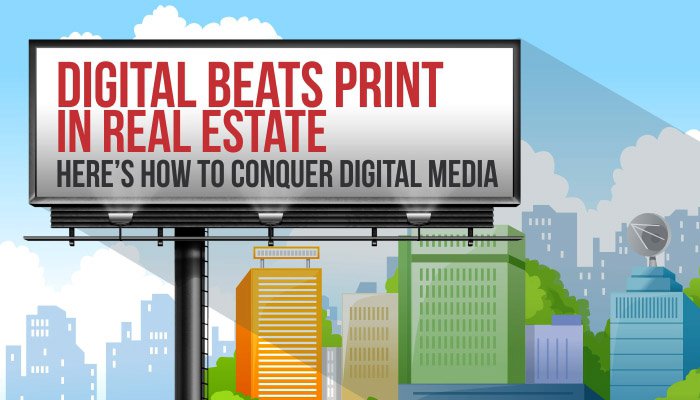
Look at this conversion table and see just how much budget can you save by investing in digital media. It is a clear case of digital beating print media.
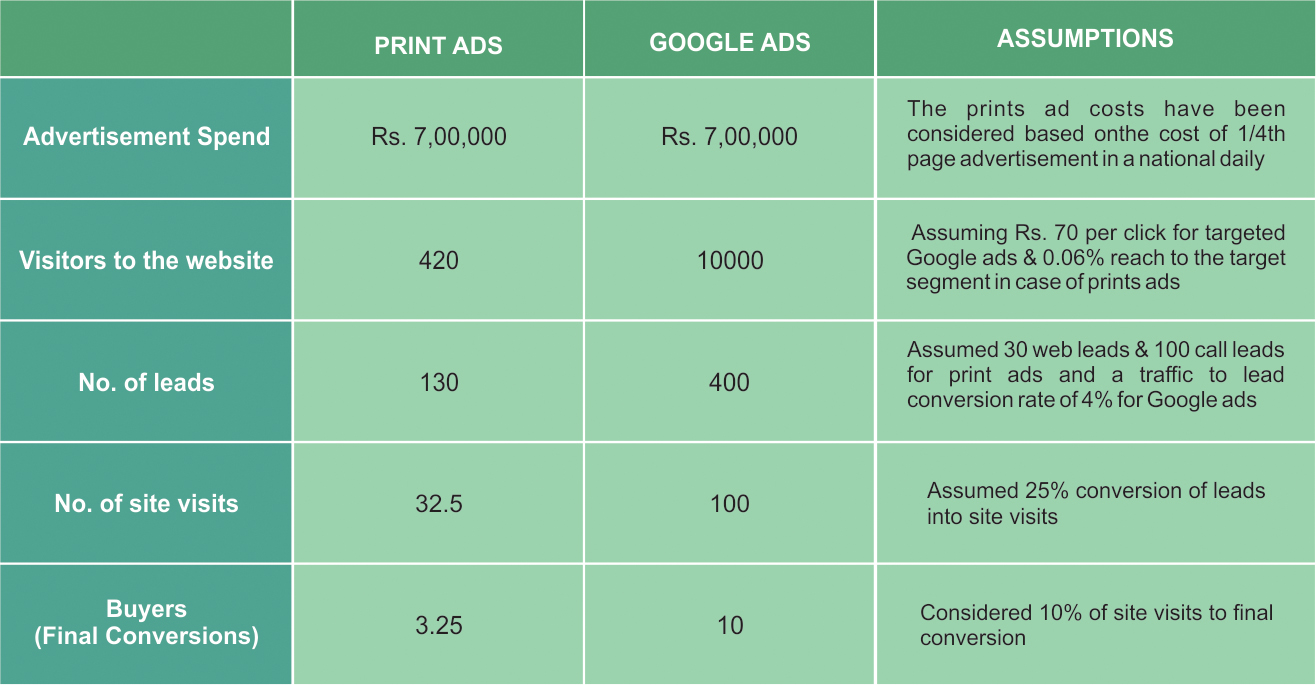
Today’s buyer is more and more tech-savvy and hence, uses technology to solve his problems, be it buying groceries or investing in some property. Research says that more than 48% of buyers use mobile media to find their property and only a fraction of the population (<25%) is smitten by the print ads enough to check out a site.
While most (~80%) still find real estate agents useful for guiding them in the property buying process, there are applications and smarter search technologies rising to replace them through mobiles. This is nothing but the power of self-empowerment.
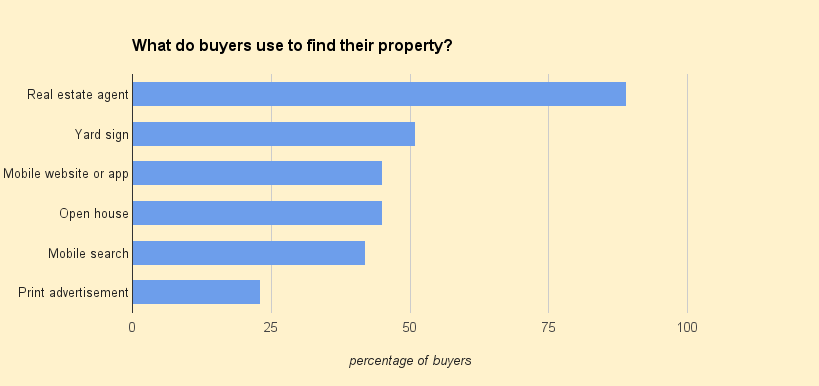
Because of this the median age of first-time buyers is also reducing (almost 32 years), which means people feel more at ease in investing property at an early age.
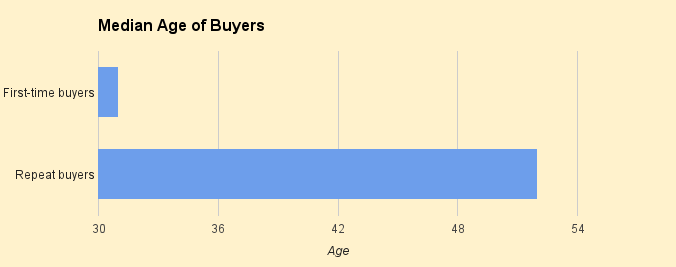
A lot of contribution to this could be given to the increasing per capita income and the recent boost in the economy. If you look at the median household income of these first-time buyers, then it is somewhere close to 65000 USD which indicates a good enough amount at their disposal for investing in a property.
Repeat buyers, on the other hand, have accumulated cash which leads to repeat purchases over a long period of time.
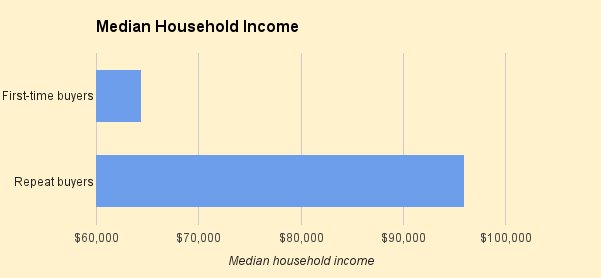
Also, the age of these repeat buyers is very high, implying a significant dependence on real estate agents (traditional methods of selling and purchasing) and this explains the long bar of real estate agents in the second graph.
Anyway, the point is that even these so-called aged buyers are now shifting towards mobile-based mechanisms to search for investment-worthy properties and thus, in a few days the graph is going to skew towards mobile marketing. This is not a made-up fact but proved by Google’s mobile search data where it receives 40% of real estate queries. Plus, most people never turn off their phones and prefer researching online before buying anything.
For more such facts on why mobile is the future of real estate and why print is dying a slow death, read on the infographic below:

Go mobile, Go App, Get a Mobile App!
